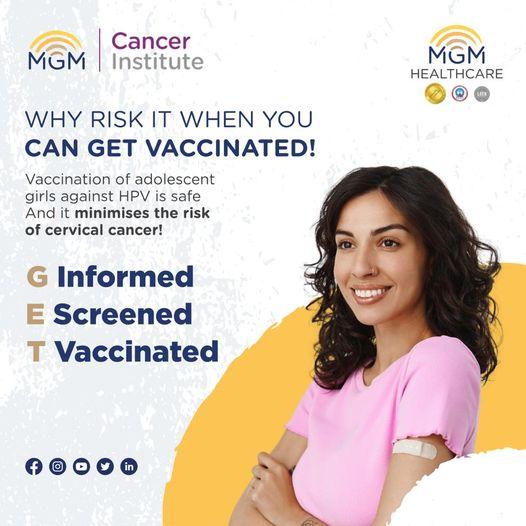Most cervical cancers are associated with human papillomavirus (HPV), a sexually transmitted infection. Widespread immunization with the HPV vaccine could reduce the impact of cervical cancer and other cancers caused by HPV worldwide.
HPV spreads through sexual contact — oral, vaginal or anal. Smoking also raises the risk of cervical cancer. To detect cervical cancer in the earliest stages, see your doctor for regular Pap tests beginning at age 21.
To know more, book an appointment our experts. Call us at 91 44 4524 2407 or visit our website
HPV spreads through sexual contact — oral, vaginal or anal. Smoking also raises the risk of cervical cancer. To detect cervical cancer in the earliest stages, see your doctor for regular Pap tests beginning at age 21.
To know more, book an appointment our experts. Call us at 91 44 4524 2407 or visit our website
Most cervical cancers are associated with human papillomavirus (HPV), a sexually transmitted infection. Widespread immunization with the HPV vaccine could reduce the impact of cervical cancer and other cancers caused by HPV worldwide.
HPV spreads through sexual contact — oral, vaginal or anal. Smoking also raises the risk of cervical cancer. To detect cervical cancer in the earliest stages, see your doctor for regular Pap tests beginning at age 21.
To know more, book an appointment our experts. Call us at 91 44 4524 2407 or visit our website
0 Comentários
0 Compartilhamentos
3127 Visualizações
0 Anterior





